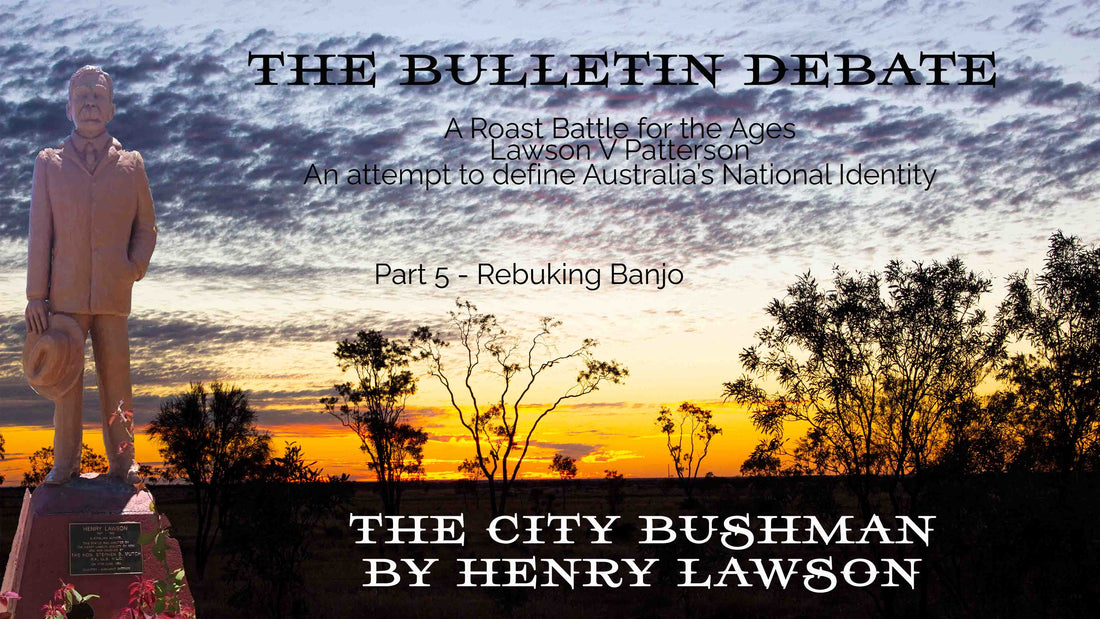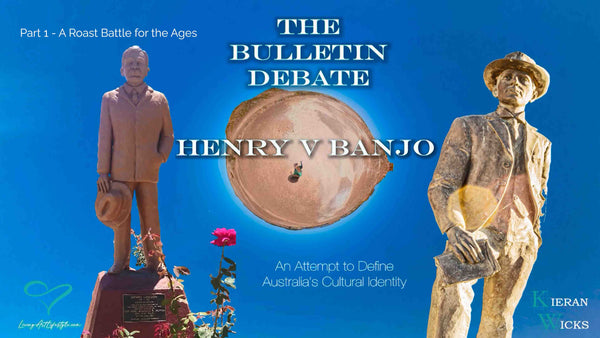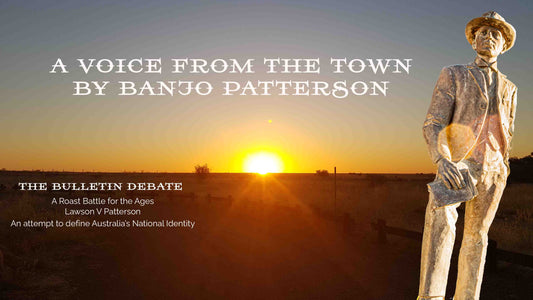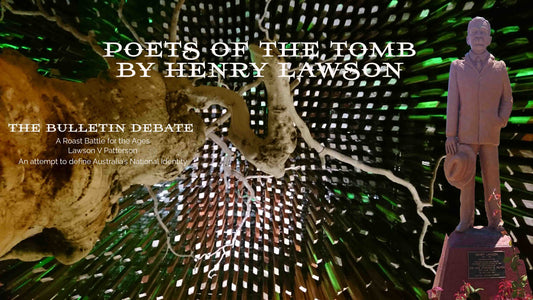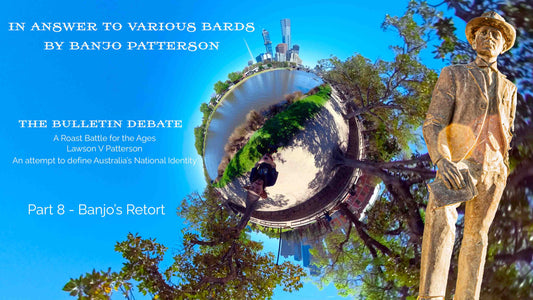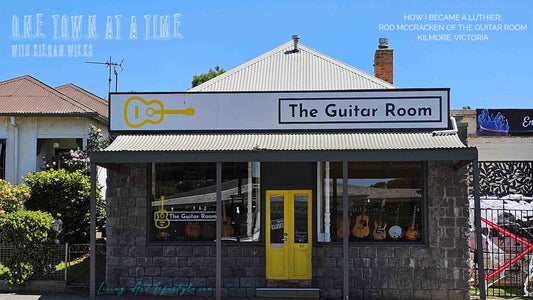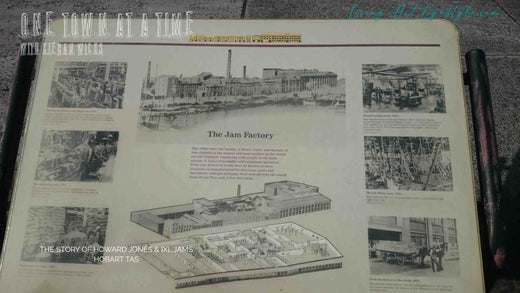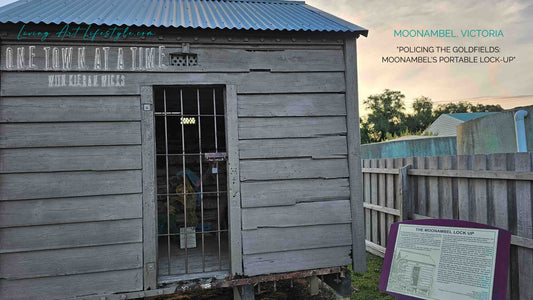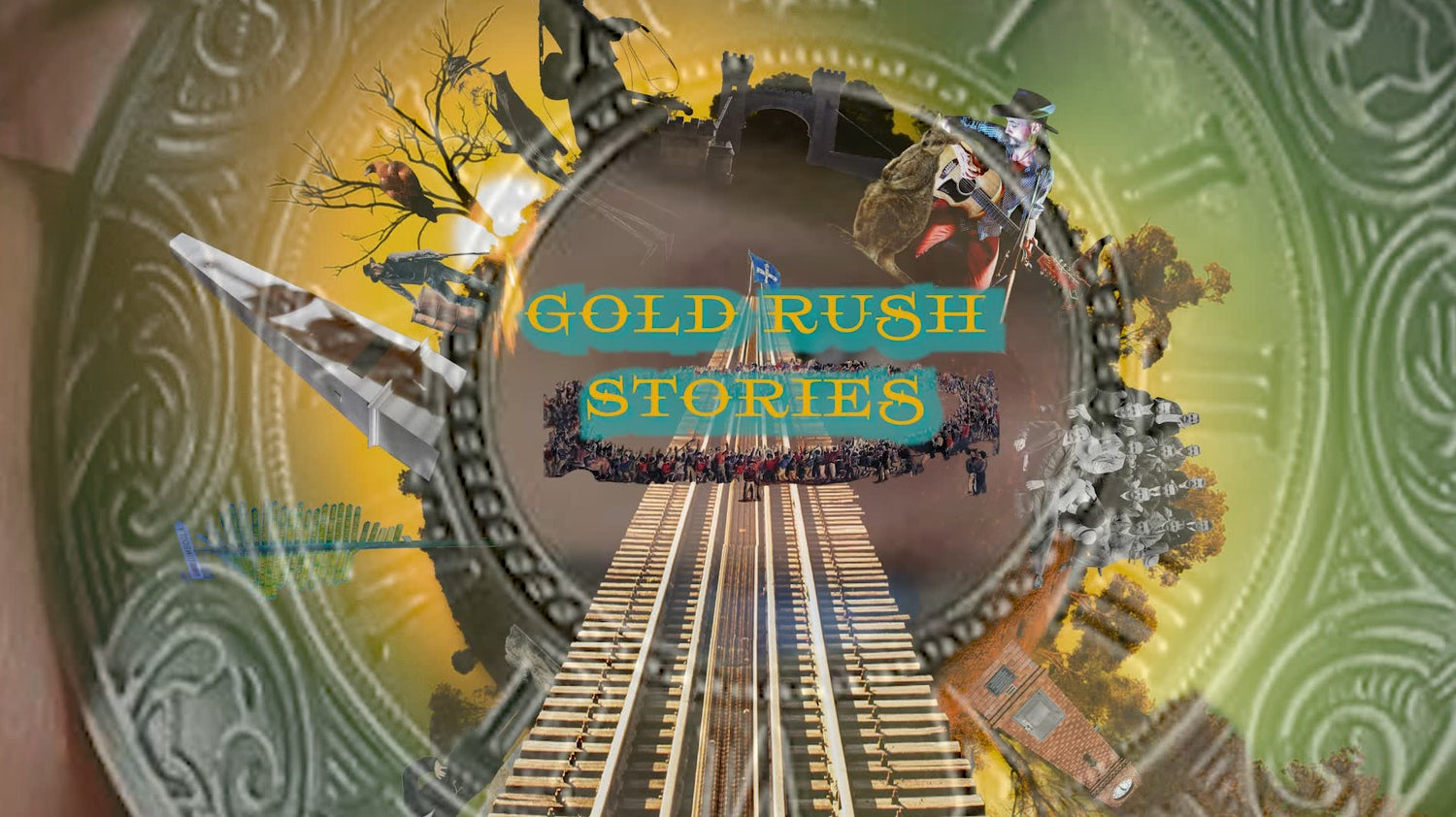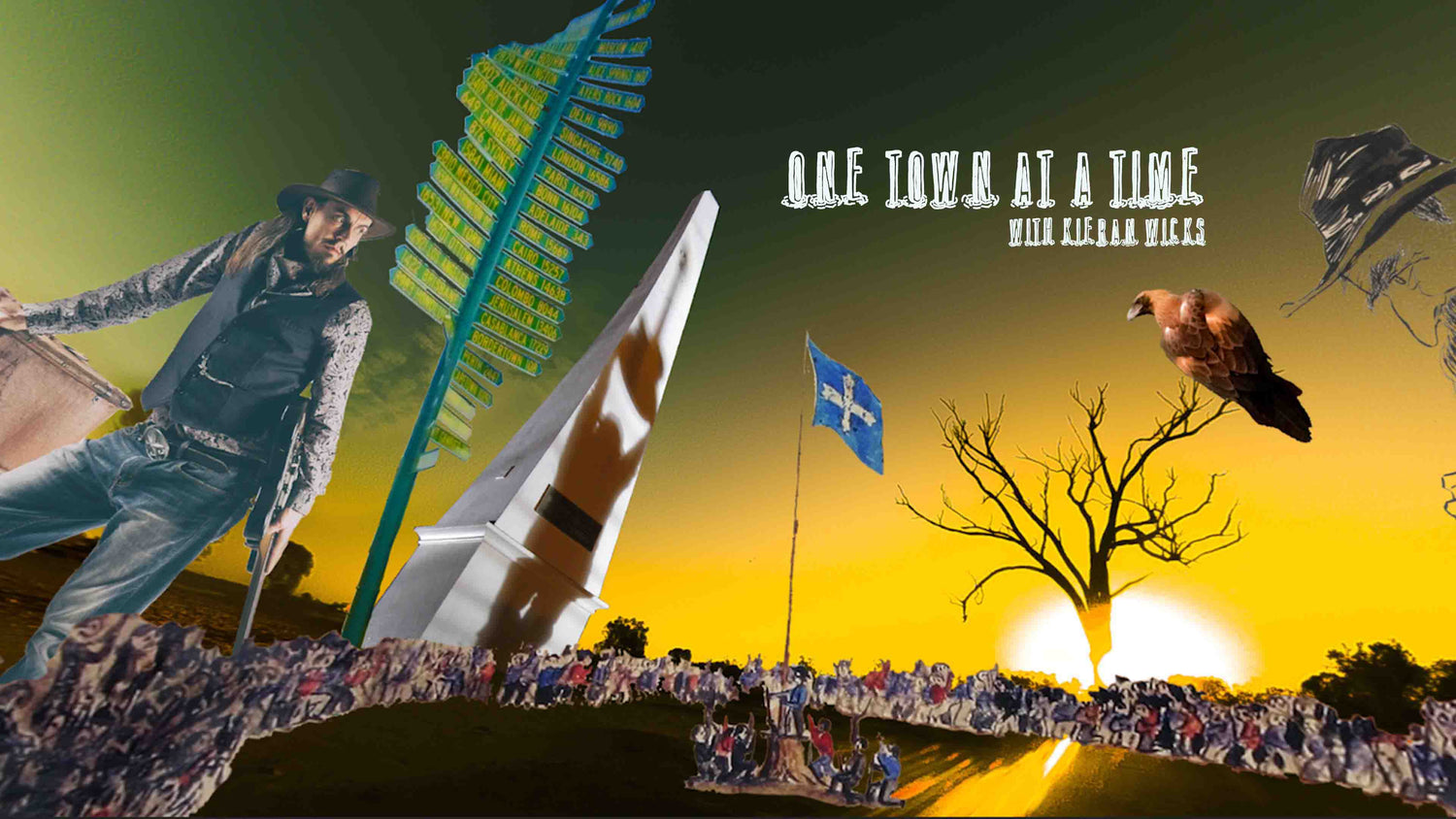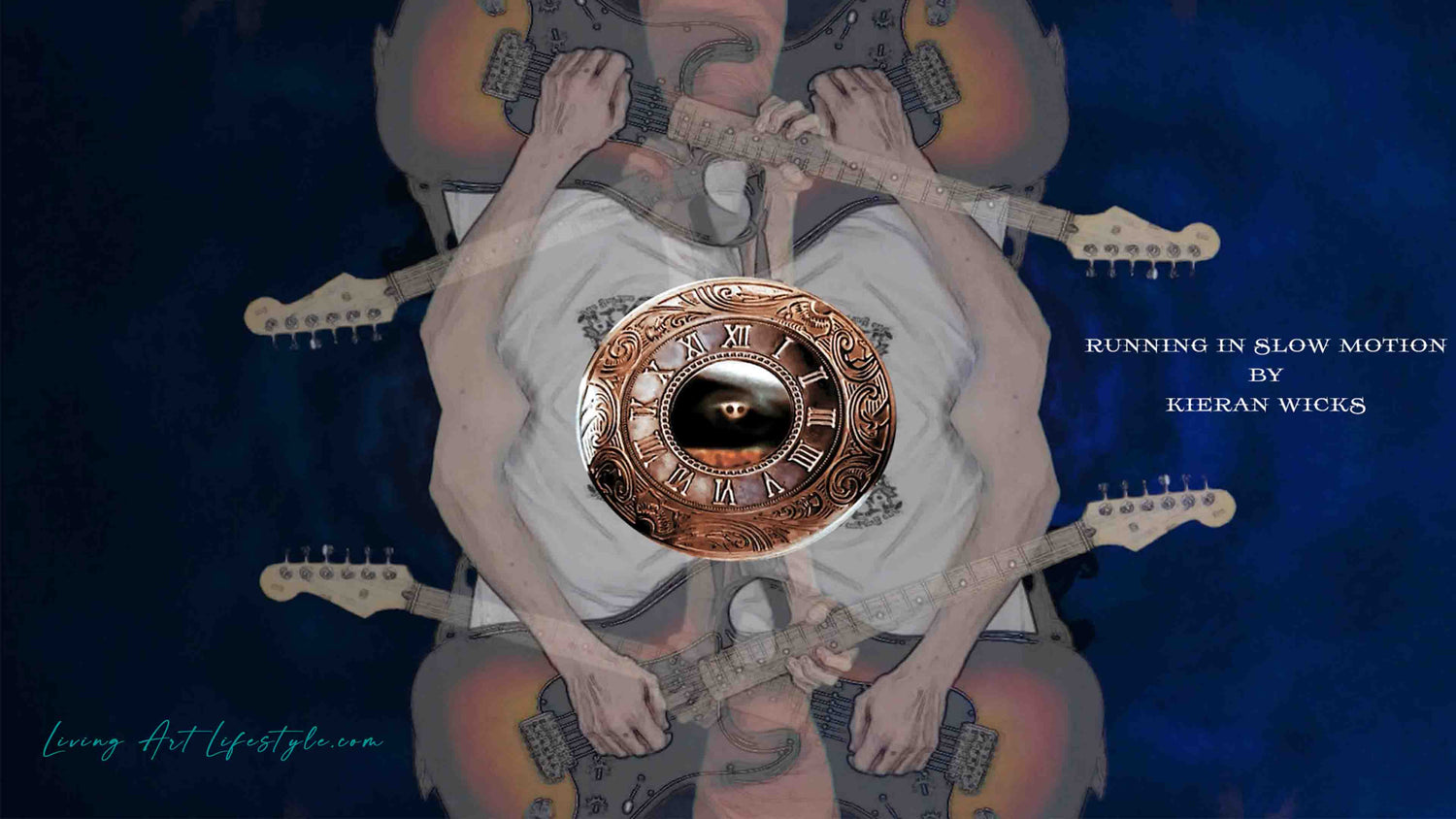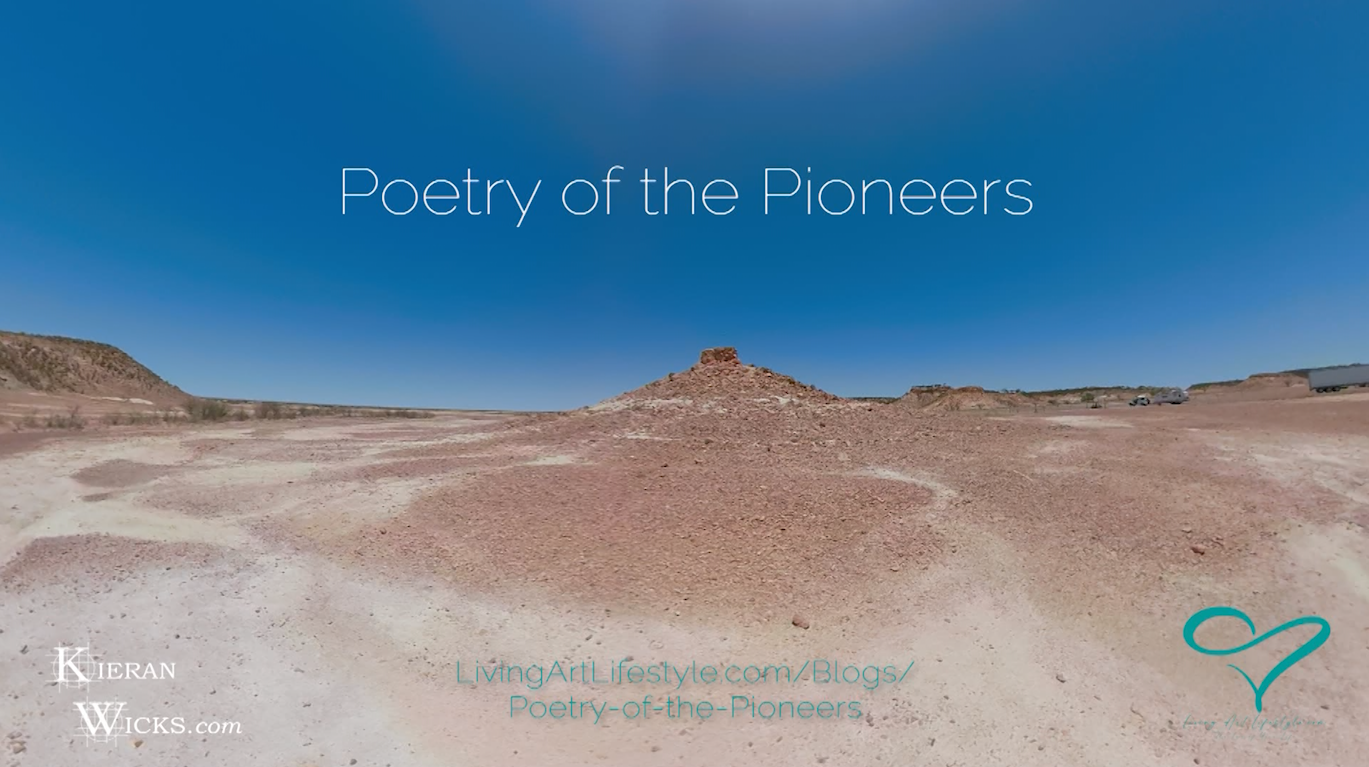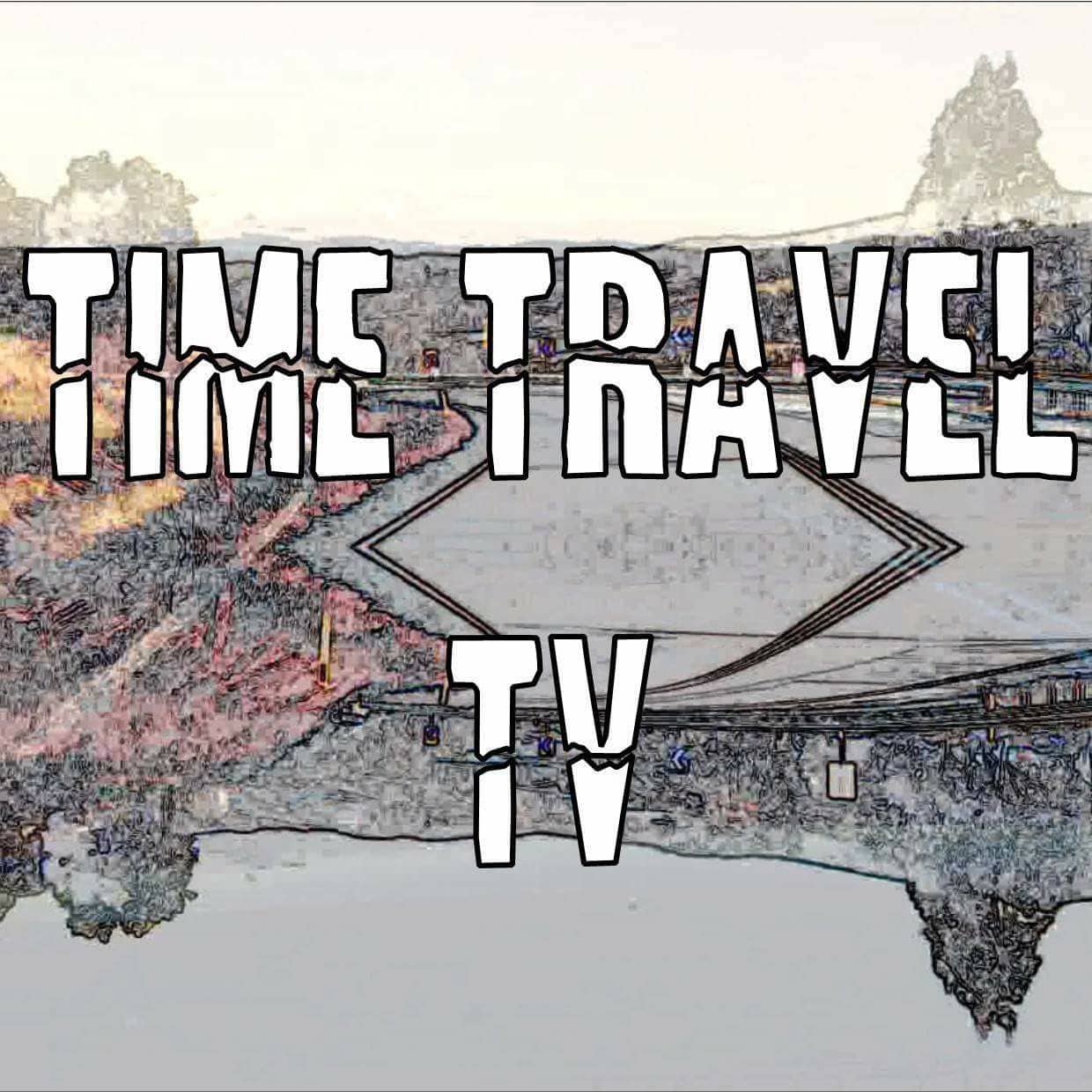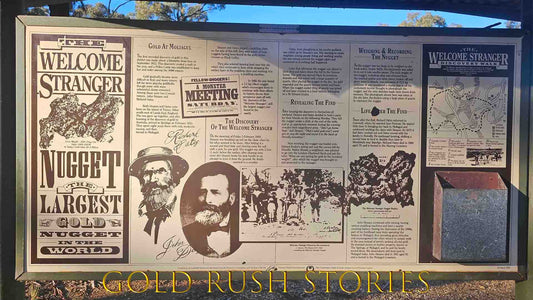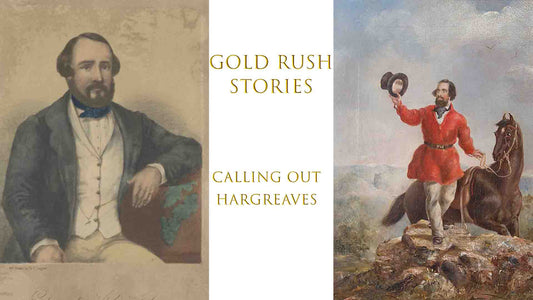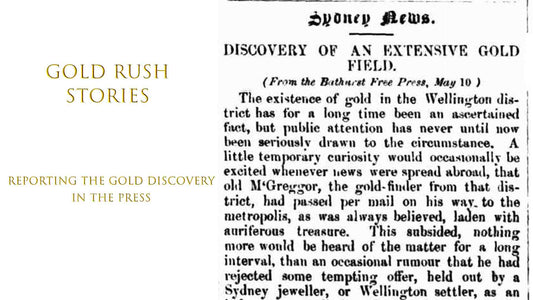Timelord - Unisex Heavy Cotton Tee
The City Bushman
The perspective of escaping to the Big Smoke from the small country town of Gulgong. The city offered Lawson more, rather than the experiences that formed much of his character out on the road.
Lawson literally calls Patterson a “Dummy” (Sick burn bro! - Lawson the Lad!!!)
The Gloves are off! Lawson insists that Banjo doesn’t know what he is talking about, having never, literally rather than figuratively, walked a mile in ‘their’ shoes, and he was right. Ironically, Patterson didn’t ‘walk in their shoes’ rather was carried upon horseback and had his meals cooked for him, whereas Lawson actually walked the country and prepared his own meals, as Patterson confesses.
Tell him he’s dreaming...
Lawson rather preferred the odds of encountering the Sydney Street Gang known as “The Push” than the quiet desperation of the bush, questioning matter of factly Pattersons wear with-all for all that comes with life in the bush.
Lawson thought that many in the bush were forgotten, their struggles and sacrifices overlooked.
Their honourable occupations for the betterment of the greater good, ie feeding the masses of the cities, paid lip service with platitude laden glorification, whilst disregarding the virtual indentured servitude of debt slavery.
It’s not always sunshine and rainbows in the bush. As with most things they too are best experienced in moderation, for a deluge of sunshine and, or, endless days of weeping grey and black skies can overwhelm the fleeting colours of a short-lived rainbow.
The bush offers a full spectrum of colour, deep blue, burnt brown, rich green and bleeding red.
Deeper and Darker still Lawson imbues that Banjo makes light when painting a romanticised picture of bush professions that don’t match the harsh reality, that it may indeed contribute to undermining the cause of overthrowing oppression.
The City Bushman by Henry Lawson
It was pleasant up the country, City Bushman, where you went,
For you sought the greener patches and you travelled like a gent;
And you curse the trams and buses and the turmoil and the push,
Though you know the squalid city needn’t keep you from the bush;
But we lately heard you singing of the ‘plains where shade is not’,
And you mentioned it was dusty — ‘all was dry and all was hot.’
True, the bush ‘hath moods and changes’ — and the bushman hath ’em, too,
For he’s not a poet’s dummy — he’s a man, the same as you;
But his back is growing rounder — slaving for the absentee —
And his toiling wife is thinner than a country wife should be.
For we noticed that the faces of the folks we chanced to meet
Should have made a greater contrast to the faces in the street;
And, in short, we think the bushman’s being driven to the wall,
And it’s doubtful if his spirit will be ‘loyal thro’ it all’.
Though the bush has been romantic and it’s nice to sing about,
There’s a lot of patriotism that the land could do without —
Sort of BRITISH WORKMAN nonsense that shall perish in the scorn
Of the drover who is driven and the shearer who is shorn,
Of the struggling western farmers who have little time for rest,
And are ruined on selections in the sheep-infested West;
Droving songs are very pretty, but they merit little thanks
From the people of a country in possession of the Banks.
And the ‘rise and fall of seasons’ suits the rise and fall of rhyme,
But we know that western seasons do not run on schedule time;
For the drought will go on drying while there’s anything to dry,
Then it rains until you’d fancy it would bleach the sunny sky —
Then it pelters out of reason, for the downpour day and night
Nearly sweeps the population to the Great Australian Bight.
It is up in Northern Queensland that the seasons do their best,
But it’s doubtful if you ever saw a season in the West;
There are years without an autumn or a winter or a spring,
There are broiling Junes, and summers when it rains like anything.
In the bush my ears were opened to the singing of the bird,
But the ‘carol of the magpie’ was a thing I never heard.
Once the beggar roused my slumbers in a shanty, it is true,
But I only heard him asking, ‘Who the blanky blank are you?’
And the bell-bird in the ranges — but his ‘silver chime’ is harsh
When it’s heard beside the solo of the curlew in the marsh.
Yes, I heard the shearers singing ‘William Riley’, out of tune,
Saw ’em fighting round a shanty on a Sunday afternoon,
But the bushman isn’t always ‘trapping brumbies in the night’,
Nor is he for ever riding when ‘the morn is fresh and bright,’
And he isn’t always singing in the humpies on the run —
And the camp-fire’s ‘cheery blazes’ are a trifle overdone;
We have grumbled with the bushmen round the fire on rainy days,
When the smoke would blind a bullock and there wasn’t any blaze,
Save the blazes of our language, for we cursed the fire in turn
Till the atmosphere was heated and the wood began to burn.
Then we had to wring our blueys which were rotting in the swags,
And we saw the sugar leaking through the bottoms of the bags,
And we couldn’t raise a chorus, for the toothache and the cramp,
While we spent the hours of darkness draining puddles round the camp.
Would you like to change with Clancy — go a-droving? tell us true,
For we rather think that Clancy would be glad to change with you,
And be something in the city; but ’twould give your muse a shock
To be losing time and money through the foot-rot in the flock,
And you wouldn’t mind the beauties underneath the starry dome
If you had a wife and children and a lot of bills at home.
Did you ever guard the cattle when the night was inky-black,
And it rained, and icy water trickled gently down your back
Till your saddle-weary backbone fell a-aching to the roots
And you almost felt the croaking of the bull-frog in your boots —
Sit and shiver in the saddle, curse the restless stock and cough
Till a squatter’s irate dummy cantered up to warn you off?
Did you fight the drought and pleuro when the ‘seasons’ were asleep,
Felling sheoaks all the morning for a flock of starving sheep,
Drinking mud instead of water — climbing trees and lopping boughs
For the broken-hearted bullocks and the dry and dusty cows?
Do you think the bush was better in the ‘good old droving days,’
When the squatter ruled supremely as the king of western ways,
When you got a slip of paper for the little you could earn,
But were forced to take provisions from the station in return —
When you couldn’t keep a chicken at your humpy on the run,
For the squatter wouldn’t let you — and your work was never done;
When you had to leave the missus in a lonely hut forlorn
While you ‘rose up Willy Riley’ — in the days ere you were born?
Ah! we read about the drovers and the shearers and the like
Till we wonder why such happy and romantic fellows strike.
Don’t you fancy that the poets ought to give the bush a rest
Ere they raise a just rebellion in the over-written West?
Where the simple-minded bushman gets a meal and bed and rum
Just by riding round reporting phantom flocks that never come;
Where the scalper — never troubled by the ‘war-whoop of the push’ —
Has a quiet little billet — breeding rabbits in the bush;
Where the idle shanty-keeper never fails to make a draw,
And the dummy gets his tucker through provisions in the law;
Where the labour-agitator — when the shearers rise in might —
Makes his money sacrificing all his substance for The Right;
Where the squatter makes his fortune, and ‘the seasons rise and fall,’
And the poor and honest bushman has to suffer for it all;
Where the drovers and the shearers and the bushmen and the rest
Never reach the Eldorado of the poets of the West.
And you think the bush is purer and that life is better there,
But it doesn’t seem to pay you like the ‘squalid street and square.’
Pray inform us, City Bushman, where you read, in prose or verse,
Of the awful ‘city urchin who would greet you with a curse.’
There are golden hearts in gutters, though their owners lack the fat,
And we’ll back a teamster’s offspring to outswear a city brat.
Do you think we’re never jolly where the trams and buses rage?
Did you hear the gods in chorus when ‘Ri-tooral’ held the stage?
Did you catch a ring of sorrow in the city urchin’s voice
When he yelled for Billy Elton, when he thumped the floor for Royce?
Do the bushmen, down on pleasure, miss the everlasting stars
When they drink and flirt and so on in the glow of private bars?
You’ve a down on ‘trams and buses’, or the ‘roar’ of ’em, you said,
And the ‘filthy, dirty attic’, where you never toiled for bread.
(And about that self-same attic — Lord! wherever have you been?
For the struggling needlewoman mostly keeps her attic clean.)
But you’ll find it very jolly with the cuff-and-collar push,
And the city seems to suit you, while you rave about the bush.
* * * * * *
You’ll admit that Up-the Country, more especially in drought,
Isn’t quite the Eldorado that the poets rave about,
Yet at times we long to gallop where the reckless bushman rides
In the wake of startled brumbies that are flying for their hides;
Long to feel the saddle tremble once again between our knees
And to hear the stockwhips rattle just like rifles in the trees!
Long to feel the bridle-leather tugging strongly in the hand
And to feel once more a little like a native of the land.
And the ring of bitter feeling in the jingling of our rhymes
Isn’t suited to the country nor the spirit of the times.
Let us go together droving, and returning, if we live,
Try to understand each other while we reckon up the div.
Goldeneye - Unisex Heavy Cotton Tee

Featured in
The Bulletin - Vol. 12 No. 650 (30 Jul 1892)
Created/Published - Sydney, N.S.W.: John Haynes and J.F. Archibald, 1880-1984
https://nla.gov.au:443/tarkine/nla.obj-489039268
📜 Episode 1: A Roast Battle for the Ages
In this episode, we delve deep into the background of the battle, meet the players and start to understand the circumstances under which it came about. Witness the clash of ideas, the powerful prose, and the cultural impact of these two literary powerhouses.
📜 Episode 2: The Opening Salvo – Borderland By Henry Lawson
A shot across the bows, Borderland displays a contempt and disdain for romanticising life on the land, pointing to the stark realities faced by those that venture inland, far flung from the luxuries of city life, Lawson leaving no doubts as to the persuasion which he prefers.
📜 Episode 3: Game On – In Defense of the Bush
Playfully scornful, cheekily referencing Lawson’s poem’s Faces in the Street, and the Bastards From the Bush. Patterson outright calls Lawson nothing more than a whinger in, In Defence of the Bush.
📜 Episode 4 – The Drovers in Reply ; The Fact of the Matter by Edward Dyson
It wasn’t long before other notable voices started chiming to the Bulletin debate, offering their own two cents, and truth be known, leaping to Lawson’s defence.
📜 Episode 5 – Rebuking Banjo ; The City Bushman by Henry Lawson
The Gloves are off! Lawson insists that Banjo doesn’t know what he is talking about, having never, literally rather than figuratively, walked a mile in ‘their’ shoes.
📜 Episode 6 - Another Contender Enters the Race ; The Overflow of Clancy by HHCC
A parody none the less, the first of two that play on Patterson’s iconic character Clancy of the Overflow. The Overflow of Clancy reads like a first-hand eye-witness account from a contemporary who had ‘dealt’ with Patterson first hand.
📜 Episode 7 - A Pile On ; Banjo of the Overflow by Francis Kenna
“And the bush is very pretty, when you view it from the city” - Would Banjo really swap his city lawyer life for that of Clancy’s?
📜 Episode 8 - Banjo's Retort ; In Answer to Various Bards by Banjo Patterson
After 4 fellow poets attack Banjo across the pages of the Bulletin, it’s easy to see that he may have felt as though he was being attacked on all fronts. it was becoming more of a pile on, so Banjo felt inclined to set the record straight.
📜 Episode 9 - Lawson's Lament ; The Poets of the Tomb by Henry Lawson
By now the debate had devolved into a slinging match. Lawson acquiesces that Banjo’s declaration of optimism is the best outlook in life in this playful lament, embracing and playing on this caricature of doom and gloom with The Poets of the Tomb his last contribution to the Bulletin Debate.
📜 Episode 10 - The Last Word ; A Voice From the Town by Banjo Patterson
Banjo thought the debate was done and dusted, but just when you think you’re out, they pull you back in. Upon returning home after many a year away. Banjo is asking himself, is the grass greener? If he had his time again, would he think and act differently?

